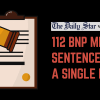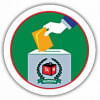Why does the EC want to talk with the BNP anyway?

When the top leadership of the Awami League and BNP, the two major political parties in Bangladesh, ruled out any possibility of talks ahead of the next parliamentary election, the Election Commission appeared in the scene by inviting the BNP to a dialogue.
Suspicious about the sudden invitation, the BNP rejected it outright, calling it "meaningless." Although the EC roadmap, announced late last year, did not say anything about talks with the political parties, it did mention that gaining their trust was a major challenge. But it did not spell out how that trust would be earned.
The EC invitation to BNP came at a time when Awami League and BNP leaders were both meeting with diplomats about the next election. It was widely reported that Western diplomats emphasised holding a free and fair election. To add to the context, the US Department of State has published its annual flagship human rights report where it was mentioned for the first time that the 2018 election was neither free nor fair. Charles Whiteley, the European Union ambassador to Bangladesh, said the EU would not send observers to the next election if it is not participatory. Now, if the international observers don't come, the election's credibility as well as the EC's role will remain under question.
It could be said that the election authorities only acted responsibly when they invited the main opposition, seeing as the issue of a participatory election is under discussion right now. On the surface, at least, the EC has demonstrated their willingness to hold an inclusive, free and fair election. But one ought to ask what the EC is looking to achieve through these talks. Other than the commission gaining some mileage by showing their attempts, and the political parties playing to the gallery, there is not much that these talks would gain. In that respect, talks with the EC would be rather infructuous.
The invitation letter to the BNP also clarifies some things. While the Election Commission is fully aware of BNP's position regarding an election-time government, there is no comment related to that in the letter. To make any progress with the election, the stumbling blocks must be dealt with, and the commission must have a specific agenda for the talks – for instance, whether to use electronic voting machines (EVMs) or not. The invitation letter does not carry any such details. Then why hold these talks?
The Election Commission may claim that their goal is to ensure an inclusive 12th parliamentary election. But simply saying that is not enough, given the previous EC's complete failure to hold a credible election in 2018, and then even admitting that publicly.
The BNP should have taken time to deliberate over their decision before rejecting the EC invitation. Now they have to explain why they don't want to join the talks. Shunning the possibility of dialogues is not a good option for any political party. The only meaningful explanation could be that holding talks with the EC would, in fact, give it the legitimacy that the BNP has refused from the beginning. But it is unlikely that the main opposition camp has given the matter any such thought.
The incumbent EC could claim that they are different from their predecessors. But then, one could ask what this commission has done to earn the trust of all political parties. The commission's activities so far don't portray them in a favourable light, nor do they indicate sincere intentions. The BNP, which boycotted EC dialogues in June and July last year, has not shown any confidence in the electoral authority since its formation – and even before its formation, since the party did not join the talks initiated by the president and did not propose any name to the search committee of this EC. The party has repeatedly said that the EC would not be able to hold a free, fair and participatory general election.
The lack of trust for the Election Commission deepened when it went ahead with the decision to use EVMs in the upcoming general election, ignoring the objection of many political parties, including the BNP. That decision, while embracing modernity and change, was aligned with the desire of the ruling party.
Undoubtedly, rejecting the dialogue would be a setback for the BNP as it would garner criticism from the ruling party. The EC would be able to say that they tried, but could not bring BNP to the table. BNP leaders would have to remain busy for a few days parrying all the criticism. The party may even face questions from the international community.
The BNP should have taken time to deliberate over their decision before rejecting the EC invitation. Now they have to explain why they don't want to join the talks. Shunning the possibility of dialogues is not a good option for any political party. The only meaningful explanation could be that holding talks with the EC would, in fact, give it the legitimacy that the BNP has refused from the beginning. But it is unlikely that the main opposition camp has given the matter any such thought.
Having said all that, the political parties can take advantage of the situation as it suits their strategy, but not the Election Commission, which is a constitutional body and assigned to hold a free, fair and participatory election. Lip service or mere show of effort may not be enough.
Listening to the trials and tribulations of this political reporter, and learning that the EC had invited the opposition to the table, a relative recounted an anecdote about the stingy hosts of a certain part of the country, where guests would often arrive on boats. The story goes like this: in this certain region, the hosts keep mum as the guests get ready to leave and get on their boat to return home, and just when the hosts push off the boat, they say, "I wish you had stayed a few more days with us." But by then the boat is already sailing, and the guests have nothing but to say, "Next time!"
Mohammad Al-Masum Molla is chief reporter at The Daily Star.

 For all latest news, follow The Daily Star's Google News channel.
For all latest news, follow The Daily Star's Google News channel. 









Comments